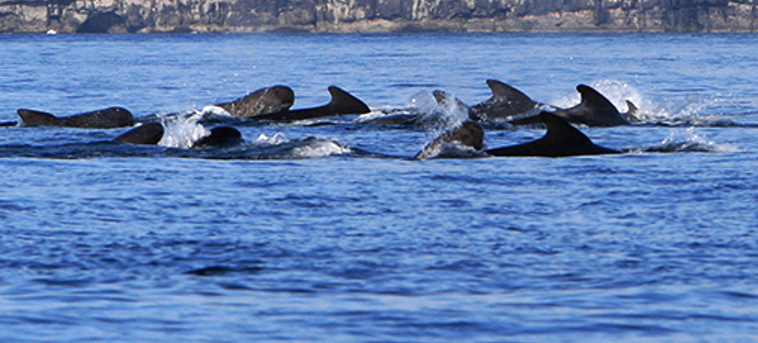
Sustainable whaling
According to the latest scientific estimates, the pilot whale population in the eastern North Atlantic numbers some 380,000 animals, with 100,000 in the area around the Faroe Islands. The average catch of pilot whales in the Faroe Islands over the past 20 years has been around 600 whales a year.
Scientific research has shown that the pilot whale population in the NE Atlantic is abundant.
The seas around the Faroes are a rich pantry—but not an inexhaustible one. Therefore, the Faroese constantly discuss how to ensure that all fishing and hunting is sustainable.
As peoples and nations everywhere, the Faroese also have the right under international law and agreements to use the natural resources they have available to them. When whales are caught, everything is exploited and nothing goes to waste.
All kinds of imported food goods can be purchased in Faroese supermarkets, but much of what the Faroese consume is hunted and caught locally.
Commercial and household economies function very well side by side in the Faroes. The subsistence economy, based on privately caught and produced food is a significant and important supplement to individual Faroese households.
The pilot whale population in the eastern North Atlantic is some 380,000 animals, with 100,000 in the area around the Faroe Islands. The Faroese catch on average 600 pilot whales annually.
REGULATED
FOOD
NATURAL
COMMUNAL


